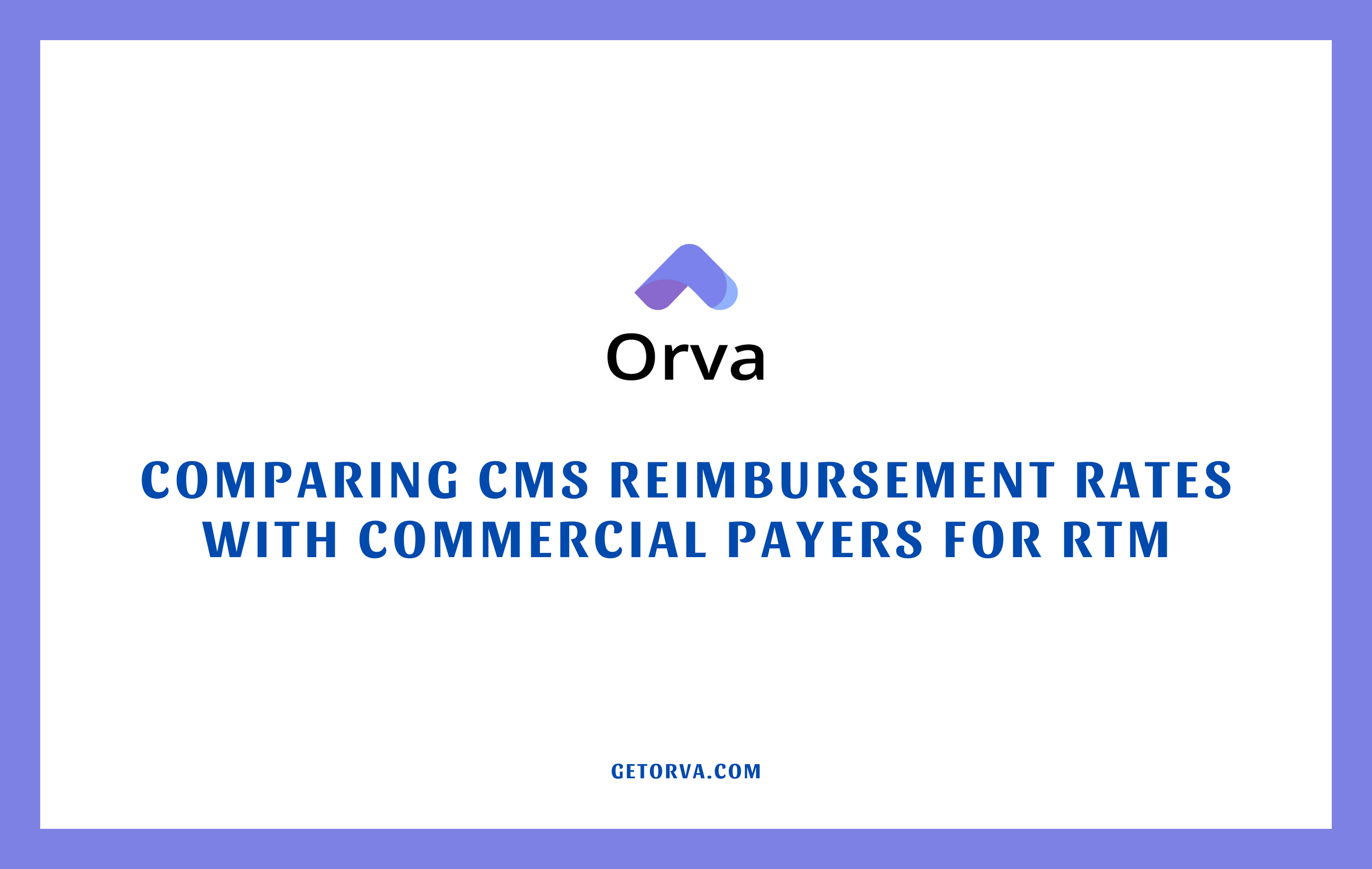Comparing CMS Reimbursement Rates with Commercial Payers for RTM
Reimbursement rates for Remote Therapeutic Monitoring (RTM) can vary significantly depending on whether you are billing the Centers for Medicare & Medicaid Services (CMS) or a commercial insurance payer.
Understanding these differences is essential for setting your fee schedules, projecting revenue, and making informed decisions about your RTM program. This guide explains the current CMS national average rates, what commercial payers typically reimburse, and how to use this information to maximize your clinic’s revenue.
Why Reimbursement Rates Differ
CMS publishes national average payment rates for each Current Procedural Terminology (CPT) code every year. These rates are generally lower than what commercial and motor vehicle accident (MVA) payers reimburse. Commercial payers set their own allowable amounts based on contract negotiations, network agreements, and local market factors.
Knowing both sets of rates helps you:
Set fee schedules strategically
Negotiate stronger commercial contracts
Accurately forecast RTM revenue potential
CMS National Average Rates for 2025
As of 2025, the CMS national averages for the most common RTM CPT codes are:
CPT 98975 — Initial setup and patient education: $20.63. Can be billed once per episode of care, requires 16 days of data in the first 30 days.
CPT 98977 — Device supply and monitoring for musculoskeletal conditions: $45.23. Can be billed every 30 days, requires 16 days of data.
CPT 98980 — First 20 minutes of treatment management: approximately $48. Requires synchronous communication.
CPT 98981 — Each additional 20 minutes of treatment management: approximately $38. Requires synchronous communication.
Typical Commercial and MVA Rates
While exact rates depend on your payer contracts, many clinics report higher reimbursement from commercial and MVA payers. A common range for these same CPT codes is:
CPT 98975 — $40 to $60, often two to three times the CMS rate.
CPT 98977 — $80 to $100, roughly twice the CMS rate.
CPT 98980 — $80 to $95, about 1.6 to 2 times the CMS rate.
CPT 98981 — $60 to $75, about 1.6 to 2 times the CMS rate.
These differences make RTM particularly valuable when you have a strong mix of commercial patients.
Setting a Strategic Fee Schedule
To avoid leaving money on the table:
Set your fee schedule above your highest expected allowable rate. For example, many clinics set CPT 98975 at $50 and CPT 98977 at $90.
Avoid setting your fee schedule to match CMS rates, since this can cap your reimbursement from commercial payers.
Review payer contracts regularly to confirm coverage rules, modifier requirements, and any caps or bundling policies that affect RTM codes.
Key Takeaways for Billing Teams
CMS rates are consistent but lower than commercial and MVA rates.
Your fee schedule should reflect both CMS and higher commercial rates to maximize reimbursement.
RTM, billed strategically, can be a reliable recurring revenue stream across payer types.
How Orva Helps You Capture Full Reimbursement
Orva’s Remote Therapeutic Monitoring platform tracks patient engagement for compliance, generates complete billing reports, and helps ensure that all claims — whether to CMS or a commercial payer — meet requirements the first time. This reduces denials and allows clinics to consistently capture the full allowable amount.
Tired of second-guessing your RTM compliance? Book a demo to discover how Orva's automated workflows ensure you stay within CMS guidelines every step of the way.

